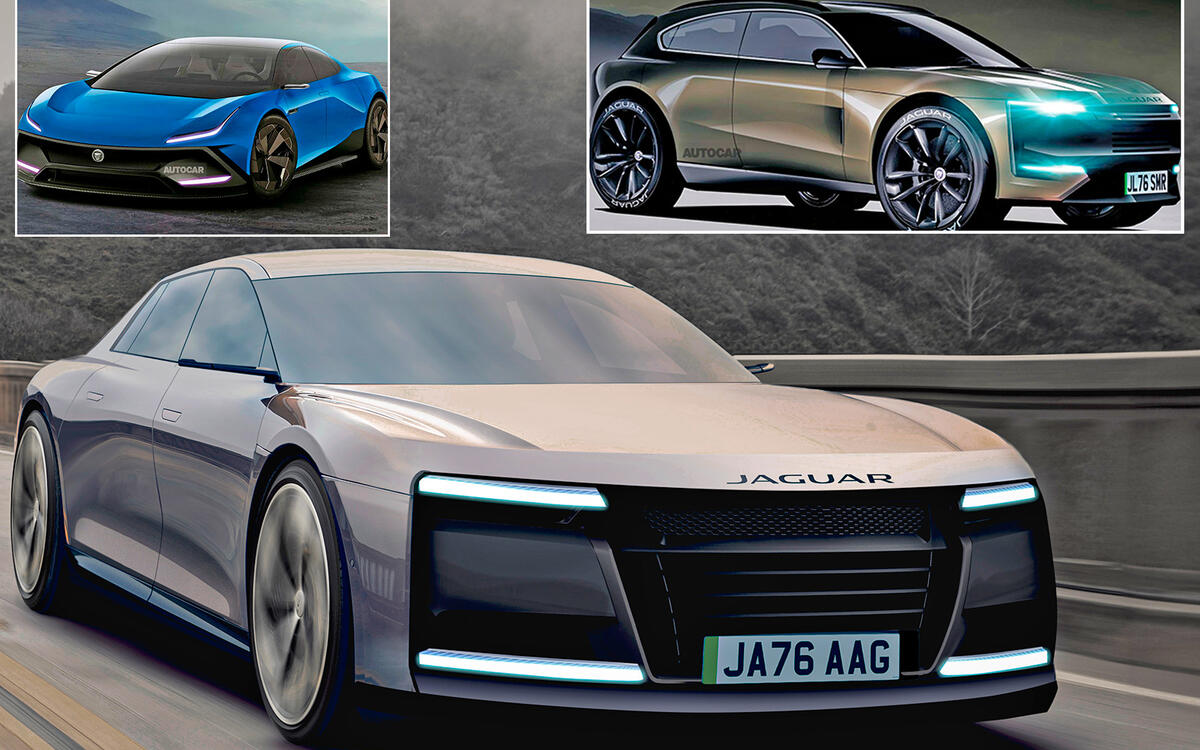Luxury cars with best resale value 2025? Yeah, that’s a hot topic, especially with the used car market being totally bonkers lately. We’re diving into which luxury rides are projected to hold their value best in 2025, considering everything from brand prestige and tech features to economic forecasts and even how reliable they are. Think of it as your ultimate guide to making a smart luxury car purchase – whether you’re buying new or used.
This isn’t just about nameplates; we’re looking at the specifics – which models within those top brands are predicted to retain value like champs. We’ll cover the factors influencing resale, from those fancy driver-assist features to whether it’s a gas guzzler or an eco-friendly hybrid. Plus, we’ll talk about how economic trends and even supply chain issues might impact things.
Get ready to become a luxury car resale expert!
Introduction

Defining “luxury” in the automotive world is tricky, as it’s a subjective blend of factors. Generally, a luxury car signifies a higher price point than its mainstream counterparts, boasting superior materials, advanced technology, and a reputation for prestige associated with a specific brand. Think Rolls-Royce, Bentley, or even high-end trims of established brands like Mercedes-Benz or BMW. These vehicles often include features like premium leather interiors, advanced driver-assistance systems, and powerful, refined engines.
The “luxury” label isn’t solely about the price tag; it’s about the overall experience and the brand’s image.Resale value, conversely, is the price a used car fetches in the secondary market. Several key factors influence a car’s resale value. Depreciation is a major one – luxury cars, while expensive, typically depreciate faster than their mainstream counterparts. However, reliable vehicles with proven track records tend to hold their value better.
Market demand plays a crucial role; popular models with strong brand recognition and desirable features will naturally command higher resale prices. Reliability, as mentioned, is paramount; a vehicle known for frequent mechanical issues will suffer in resale value. Finally, the overall condition of the car – its mileage, maintenance history, and any accidents – all heavily impact its worth.
Thinking about luxury cars with the best resale value in 2025? A big factor to consider, especially with EVs gaining popularity, is the long-term cost of ownership. You’ll want to check out this article on EV battery replacement cost 2025 to get a better sense of potential future expenses. Ultimately, knowing these costs can help you make a smarter decision when choosing a luxury car with strong resale potential.
Automotive Market Trends Influencing 2025 Resale Values
The automotive landscape is constantly evolving, and several trends are expected to significantly influence resale values in 2025. The increasing popularity of electric vehicles (EVs) is a major factor. While currently a niche market, the expectation is that EVs will gain significant market share by 2025, impacting the resale value of traditional internal combustion engine (ICE) vehicles. Luxury EVs from established brands like Tesla, Porsche, and Audi are already setting a high bar, and their resale values will likely be a key indicator of future trends.
Another trend is the growing demand for SUVs and crossovers, which are becoming increasingly popular across all market segments, including luxury. This shifting consumer preference will likely influence the resale values of sedans and coupes, potentially driving them down. Finally, technological advancements, such as autonomous driving features and advanced infotainment systems, will also play a role. Vehicles equipped with cutting-edge technology tend to hold their value better, reflecting the premium placed on these features by buyers.
Thinking about luxury cars with the best resale value in 2025? Factors like reliability and maintenance play a huge role. Even electric luxury vehicles need upkeep, and sometimes that means tackling projects like a DIY coolant replacement for EVs , which can save you some serious cash. Knowing how to handle basic maintenance can definitely boost your car’s longevity and, consequently, its resale value down the line.
For example, the early adoption of Tesla’s Autopilot system significantly impacted the resale value of their vehicles.
Top Luxury Car Brands with Strong Resale Value Projections for 2025
Predicting future resale value is tricky, but by analyzing historical data and current market trends, we can identify luxury car brands likely to hold their value exceptionally well into 2025. Several factors contribute to strong resale value, including brand reputation, technological advancements, production numbers (limited editions often retain value better), and overall demand.Several factors influence a luxury car’s resale value.
Brand reputation is paramount; some brands consistently command higher prices on the used market. Technological innovations, especially those related to safety and performance, also impact resale value. Limited production runs and highly sought-after models tend to appreciate, while mass-produced models might depreciate faster. Finally, the overall health of the economy and consumer confidence play a role in used car pricing.
Top Five Luxury Brands with Strong Resale Value Projections for 2025
Based on historical performance and current market trends, five luxury car brands are projected to maintain strong resale values in 2025: Porsche, Lexus, Toyota (specifically Lexus division), BMW, and Mercedes-Benz. Porsche’s enduring appeal and strong performance consistently place it at the top of the resale value charts. Lexus, known for its reliability and quality, typically experiences minimal depreciation.
BMW and Mercedes-Benz, while facing increased competition, still hold significant market share and maintain respectable resale values, especially for certain models. Toyota’s reputation for reliability is also a major factor in Lexus’s strong resale value.
Depreciation Rate Comparison of Top Brands (Past Five Years), Luxury cars with best resale value 2025
Comparing depreciation rates across these brands over the past five years requires looking at specific models and market conditions. Generally, Porsche models have shown the lowest depreciation rates, followed closely by Lexus. BMW and Mercedes-Benz have exhibited slightly higher depreciation, particularly for certain models that were heavily produced. However, specific models within these brands, such as the Porsche 911 or Lexus LX, often defy typical depreciation trends.
For example, certain limited-edition Porsches might even appreciate in value over time. It’s crucial to note that these are general trends; individual model variations exist due to factors like condition, mileage, and optional features.
Specific Models Expected to Retain Value Exceptionally Well
Several specific models within these top brands are expected to retain their value particularly well. Within Porsche, the 911 Carrera and Turbo models, due to their iconic status and strong performance, consistently command high resale prices. For Lexus, the LX SUV and the LS sedan, known for their reliability and luxury features, are predicted to hold their value well.
In the BMW lineup, the M series performance cars often retain their value due to high demand. Finally, Mercedes-Benz’s AMG performance models and the G-Class SUV, known for its off-road capabilities and unique styling, are likely to maintain strong resale values. These predictions are based on past performance and current market demand, but individual circumstances can influence the actual resale value.
Factors Affecting Resale Value
Predicting the resale value of a luxury car is a complex game, influenced by a multitude of factors beyond just the brand’s reputation. While brand prestige plays a significant role, the technological features and overall design choices significantly impact how much a car is worth on the used market years down the line. Understanding these factors is key for both buyers and sellers navigating the luxury car landscape.
Advanced Driver-Assistance Systems (ADAS) and Resale Value
Advanced driver-assistance systems, like adaptive cruise control, lane-keeping assist, automatic emergency braking, and blind-spot monitoring, are increasingly important to buyers. These features enhance safety and driving convenience, making them highly desirable. Cars equipped with comprehensive ADAS suites tend to command higher resale values because they cater to a growing market segment prioritizing safety and technology. For example, a 2025 Mercedes-Benz S-Class with the latest Driving Assistance Package is likely to retain more value compared to a similarly equipped model lacking these features, even if both are otherwise identical.
The perception of enhanced safety directly translates into a higher price tag in the used car market.
Electric Vehicle (EV) and Hybrid Powertrain Impact on Resale
The shift towards electric and hybrid vehicles is dramatically altering the used car market. While the long-term resale value of EVs remains somewhat uncertain due to rapid technological advancements and battery degradation concerns, early indications suggest strong demand for well-maintained, high-range EVs from established luxury brands. Hybrid powertrains, offering a blend of fuel efficiency and performance, generally enjoy better resale value than purely gasoline-powered counterparts, especially in regions with stricter emission regulations or higher fuel prices.
Tesla’s consistent high demand in the used car market, despite the rapid pace of model updates, serves as a good example of the potential for strong EV resale value.
Luxury Features and Perceived Value
Specific luxury features significantly influence a car’s perceived and actual resale value. High-quality interior materials, such as handcrafted leather, real wood trim, and premium stitching, contribute to a car’s overall sense of opulence and craftsmanship. These details significantly impact a buyer’s willingness to pay a higher price on the used market. Similarly, sophisticated infotainment systems with intuitive interfaces, large touchscreens, and seamless smartphone integration are becoming increasingly crucial.
A dated or clunky infotainment system can significantly detract from a car’s perceived value, even if other aspects are impeccable. Think of the difference between a beautifully appointed interior with a cutting-edge sound system versus one with plastic trim and a basic radio – the former will hold its value far better.
Feature Comparison Across Luxury Car Segments
| Feature | Sedan | SUV | Coupe |
|---|---|---|---|
| ADAS Suite (Comprehensive) | High Impact | High Impact | Medium Impact |
| Electric/Hybrid Powertrain | Medium-High Impact | High Impact | Low Impact |
| Interior Materials (Premium) | High Impact | High Impact | High Impact |
| Infotainment System (Advanced) | High Impact | High Impact | Medium Impact |
Market Conditions and Economic Factors

The resale value of luxury cars, even those projected to hold their value well, is significantly impacted by broader economic trends and market fluctuations. Understanding these dynamics is crucial for anyone considering buying or selling a high-end vehicle. Factors like inflation, recessionary pressures, and supply chain issues all play a role in shaping the used luxury car market.Economic fluctuations, particularly inflation and recession, can dramatically alter the landscape of the used luxury car market.
During periods of high inflation, the cost of everything increases, including new car prices. This, in turn, can influence the perceived value of used luxury cars, potentially slowing down sales as buyers become more price-sensitive. Conversely, during a recession, consumer spending generally decreases, leading to lower demand for both new and used luxury vehicles. This reduced demand directly translates to lower resale values.
The 2008 financial crisis provides a stark example; the resale value of luxury vehicles plummeted as the economy contracted and consumer confidence waned.
Inflation’s Impact on Resale Value
High inflation erodes purchasing power. Consumers may postpone major purchases like luxury cars, leading to a decrease in demand for used models. This reduced demand puts downward pressure on prices. For example, if the inflation rate is consistently high (say, above 5%), buyers might hesitate to pay the same price for a used luxury car as they would have a year earlier, reflecting the diminished real value of their money.
This creates a seller’s market for lower-priced vehicles but a buyer’s market for high-end luxury cars.
Supply Chain Disruptions and Used Luxury Car Availability
Supply chain disruptions, a recurring theme in recent years, have a complex effect on the used luxury car market. When new car production is hampered by shortages of microchips or other critical components, the availability of new vehicles decreases. This can, paradoxically, increase demand for used luxury cars, potentially boosting their resale values. However, if the disruptions also affect the availability of parts for repairs and maintenance of used cars, this could negate the positive impact on resale value.
The shortage of specific luxury car models in the new car market during the pandemic provides a clear example of how supply chain issues can affect the used car market. The limited availability of certain models drove up the demand and prices for pre-owned versions.
Shifting Consumer Preferences and Buying Habits
Consumer preferences are constantly evolving, influenced by technological advancements, environmental concerns, and broader societal shifts. The increasing popularity of electric vehicles (EVs) is a prime example. The higher initial cost of EVs means the used market is still developing. As the technology matures and more EVs enter the used market, the resale values of traditional internal combustion engine (ICE) luxury cars might be affected, especially for models perceived as less environmentally friendly.
Similarly, a growing preference for SUVs over sedans could impact the resale value of luxury sedans. The rise in popularity of subscription services for cars could also influence the demand for used luxury cars, as consumers may opt for short-term access rather than ownership.
Maintenance and Reliability’s Role in Resale: Luxury Cars With Best Resale Value 2025

A luxury car’s resale value isn’t solely determined by its initial price tag or brand prestige. A meticulously maintained vehicle with a proven track record of reliability significantly outperforms its less-cared-for counterparts in the used car market. Buyers are increasingly savvy, understanding that preventative maintenance translates directly into lower future ownership costs and a more enjoyable driving experience.
This awareness significantly impacts the price a seller can command.A car’s maintenance history and reliability ratings are crucial factors influencing its resale value. A comprehensive service record showcasing regular oil changes, timely repairs, and adherence to manufacturer-recommended maintenance schedules dramatically increases a vehicle’s desirability. Conversely, a lack of documentation or evidence of neglected maintenance can severely depress resale value, raising concerns about potential hidden problems and future repair costs for prospective buyers.
Independent reliability ratings from organizations like Consumer Reports or J.D. Power also play a significant role; vehicles with consistently high ratings command premium prices.
Reliability Ratings and Brand Reputation
Luxury car brands boast varying levels of reliability. Lexus, for example, consistently ranks high in reliability surveys, leading to strong resale values for their models. Their reputation for dependability attracts buyers willing to pay a premium for a used Lexus compared to a similarly priced competitor with a less stellar reliability record. On the other hand, some European luxury brands, while offering luxurious features and performance, have sometimes faced criticism for higher-than-average repair costs and less predictable reliability.
This can impact their resale value, even if the car is well-maintained. For instance, a meticulously maintained BMW might not command the same resale price as a similarly maintained Lexus due to perceived differences in long-term reliability.
Recommended Maintenance Practices for Maximizing Resale Value
Maintaining a comprehensive service history is paramount. This involves documenting every service appointment, repair, and part replacement. A well-organized service binder, either physical or digital, showcasing this history is a powerful selling point.
- Regular Oil Changes: Follow the manufacturer’s recommended oil change intervals precisely. Using high-quality oil is also beneficial.
- Tire Rotations and Balancing: Ensuring even tire wear extends their lifespan and contributes to a smoother ride, positively impacting resale value.
- Fluid Changes: Regularly change transmission fluid, brake fluid, coolant, and power steering fluid according to the manufacturer’s schedule.
- Preventative Maintenance: Address any minor issues promptly to prevent them from escalating into more expensive repairs. This includes addressing warning lights and unusual noises immediately.
- Detailed Records: Keep detailed records of all maintenance performed, including dates, services performed, and parts replaced. Retain invoices and receipts.
- Professional Service: Use authorized dealerships or reputable independent mechanics for service and repairs. This demonstrates a commitment to quality maintenance.
- Bodywork and Interior Care: Maintain the car’s exterior and interior in excellent condition. Regular washing, waxing, and interior detailing enhance its overall appeal and resale value.
Visual Representation of Resale Value Data
Data visualization is crucial for understanding the complex landscape of luxury car resale values. By presenting projected resale data graphically, we can easily identify trends and compare the performance of different models and brands. This section will describe two visual representations: a line graph showing the projected resale value of specific luxury car models and a bar chart comparing the top five luxury brands by projected resale value.
Projected Resale Values of Luxury Car Models in 2025
Imagine a line graph with the horizontal axis representing time (in years, perhaps from 2023 to 2025, with 2025 highlighted), and the vertical axis representing the percentage of original MSRP retained. Several lines represent different luxury car models, such as a Porsche 911, a Mercedes-Benz S-Class, a BMW 7 Series, and a Tesla Model S Plaid. Each line would show the projected resale value percentage at various points in time.
For example, the Porsche 911 line might show a consistently high retention rate, perhaps starting at 85% in 2023 and reaching 78% by 2025. In contrast, the Tesla Model S Plaid might show a steeper decline, possibly starting at 75% in 2023 and dropping to 60% by 2025, reflecting the faster technological obsolescence in the EV market. Key data points, such as the projected resale value at the end of 2025 for each model, would be clearly labeled.
The graph would highlight trends, such as which models are projected to retain value better and the overall rate of depreciation for each. This visual would clearly illustrate the differences in projected resale value between various luxury car models, offering a direct comparison.
Top Five Luxury Car Brands by Projected Resale Value in 2025
A bar chart would effectively visualize the top five luxury car brands with the strongest projected resale values in 2025. The horizontal axis would list the five brands (e.g., Porsche, Lexus, Mercedes-Benz, BMW, and Audi). The vertical axis would represent the average projected resale value percentage across their model lineups in 2025. Each brand would be represented by a bar whose height corresponds to its average resale value percentage.
For example, Porsche might have the tallest bar, indicating a higher average resale value than the others. Lexus, known for its reliability, might be second. The chart would clearly show the relative performance of these top brands, highlighting the differences in their projected resale value retention. This visual would allow for a quick and easy comparison of the top performers in the luxury car market regarding resale value.
The data used to create this chart would come from reputable sources, such as automotive valuation companies and industry analysts, to ensure accuracy and reliability. This approach provides a concise and informative summary of brand performance.
Final Conclusion
So, there you have it – your sneak peek at the luxury cars expected to hold their value best in 2025. While predicting the future is always a bit tricky, by understanding the factors that drive resale value – brand reputation, tech features, reliability, and market trends – you can make a more informed decision. Whether you’re looking to buy a luxury car now or planning for the future, this info should give you a serious advantage in the game.
Happy driving!









